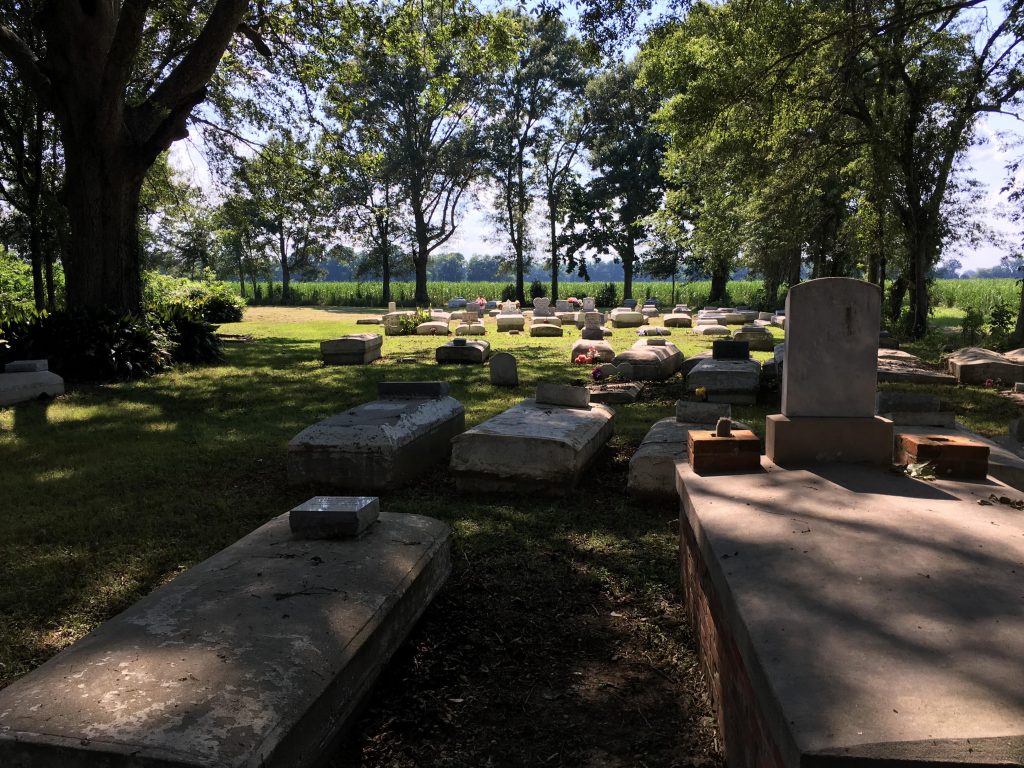The Taproot Remains: On the Life and Legacy of Ernest J. Gaines

On an acre of land, in South Louisiana, surrounded by sugar cane fields, Ernest J. Gaines will be laid to rest. He will lie among his ancestors, those who lived on and worked the land of Riverlake Plantation in Pointe Coupée Parish Louisiana. The inscription upon his grave will read, “To lie with those who have no mark.”
This inscription encapsulates Gaines’ life and work. Born on Riverlake Plantation in 1933, he moved, at the age of 15, to California to join his parents. When he arrived, he went into the local library and started looking at the shelves. He went to the fiction section and pulled books down by authors who wrote about the land and those who tilled it. He found Russian writers such as Ivan Turgenev and Leo Tolstoy. He found America authors such as John Steinbeck, Willa Cather, and William Faulkner. He did not, however, find authors who wrote about the people he knew, rural Black men, women, and children in South Louisiana.
In an undated small flip notebook housed in the collection at the Ernest J. Gaines Center at University of Louisiana at Lafayette, Gaines expresses why he became a writer:
I write because I must. Because there’s something out there that’s needs to be said. If I don’t say it — nobody else might not say it either. By this, I mean, who will write about my part of the country? Who will talk about write about the way my people talk, the way they sing, the way they feel about God, the way they work; their superstitions. There are so many things that can be said about this particular area … Money is not the objective, though I want to make money with my writing. But I want to get self-satisfaction.
This is what Gaines did throughout his career. He wrote about the people he knew. The land he knew. Their struggles. Their joys. Their lives. He gave voice to those who did not appear in the books he discovered in California. He gave voice to those who Faulkner, Eurdora Welty, and others marginalized.
The Autobiography of Miss Jane Pittman (1971) was the novel that made Gaines a household name. Three years later, the film adaptation appeared on CBS, staring Cicely Tyson in the eponymous role of Miss Jane. The film won nine Emmys, including for Tyson for Best Lead Actress in a Drama and John Korty for Best Directing in Drama — Single Program. The film is important because it was the first major production, on network television, that focused on Blacks and consisted of a majority Black cast. The film paved the way for the television adaptation of Alex Haley’s Roots, which would premiere three years later in 1977.
After reading the novel, James Baldwin wrote to Gaines, “I think you are an extraordinary artist indeed and Jane Pittman is a most moving, most beautiful, most truthful book. I am very grateful to you, much heartened, and (if I may say so) very proud.” With Pittman, as he had done with his previous works (Catherine Carmier, Of Love and Dust, and Bloodline), Gaines tells the story of a woman and a community whose voices had not been heard. Gaines concluded a speech about the novel by stating, “To anyone who might ask why should I read about someone who did not fight war, make laws, marry a great politician or Statesman or writer, or doctor, I would say read about Miss Jane because she survived with strength, dignity, love and respect for men, God, nature, baseball, and vanilla ice cream, during the most demanding hundred years of American history.”
While Gaines did not find his voice or the voices of those he knew in the California library, other artists found their voices in him. Alice Walker wrote to Gaines in 1969 expressing her admiration for Gaines’ style and craft. After reading “The Sky is Gray” in Negro Digest, she told him, “there is abundant love, compassion, an appreciation of pride and courage, humanity” within the characters and the story. She continued by commenting on Gaines’ use of language: “Then there is the way you write the language. No one living does it better. I know nothing of the New Orleans or rather Louisiana dialects, but I read you and I hear them.” This hearing Louisiana gave Walker the confidence, as she expressed later in the letter, to write her Middle Georgia dialect.

The land and the people of South Louisiana drove Gaines. They drove him to tell their stories. “Just Like a Tree,” the final story in Bloodline (1968), tells the story of the final party for Aunt Fe in the quarters before her family moves her to the North. It’s told from multiple points of view, pulling on Faulkner’s As I Lay Dying. Aunt Fe doesn’t want to move. She wants to remain in the quarters, and at the end of the story, she dies peacefully in her sleep, remaining in her home.
Most of the characters in the story provide narrative discussions of the ongoing events, but Aunt Clo’s section is more poetic, more symbolic. She compares Aunt Fe to a great tree with a chain wrapped around it, and someone keeps “jecking and jecking” the chain to pull the tree out by the roots so it can be moved. Once the person extricates the tree, a large hole remains with a “piece of the taproot still way down in it — a piece of the taproot you won’t never get out no matter if you dig till doomsday.”
The tree and the taproot recalls Gaines in a myriad of ways. When he started writing, he tried to write about California, but he couldn’t. In 1962, he was supposed to go on a trip with some friends to Mexico to write, but he saw James Meredith at Ole Miss. He said that he saw Meredith and that if he wanted to write, he “would have to take the same chances in Louisiana that Jim Meredith was taking in going to Mississippi.” That is what he did. He started going back to Louisiana, for months on end, to listen to the people who still lived at Riverlake Plantation. He heard their stories, and he told them to the world.

Gaines ultimately returned to Louisiana for good, buying land and building his home on Riverlake Plantation. As Aunt Clo puts it, “You get a big hole in the ground, sir; and you get another big hole in the air where the lovely branches been all these years. Yes, sir, that’s what you get. The holes, sir, the holes. Two holes, sir, you can’t never fill no matter how hard you try.” Gaines’ passing, along with the passing of Toni Morrison and Paule Marshall, have left holes that we can never fill, no matter how hard we try. However, their taproots remain. The legacies they left spread out.
When I think about Gaines, Morrison, and Marshall, I think about a scene from The Autobiography of Miss Jane Pittman. When Tee Bob Samson locks himself in the library because the “rule” will not allow him to love Mary Agnes because of her race, nothing in that room, a room filled with books on the history of the South and slavery, would let him forget about the unspoken rules. He kills himself with the letter opener that his grandfather used in the state capital in Baton Rouge, using the instrument of oppression to murder himself. His father, Robert, chops through the library doors, essentially demolishing the receptacle of racism. Within this scene, I see Gaines taking the books he read in California down from the shelves, the books that did not contain the voices of those he knew, the books that denied those he knew their humanity. In their place, he puts his book. He gives voice to the voiceless and places them on the shelf.
Rest in power Ernest J. Gaines.
Copyright © AAIHS. May not be reprinted without permission.